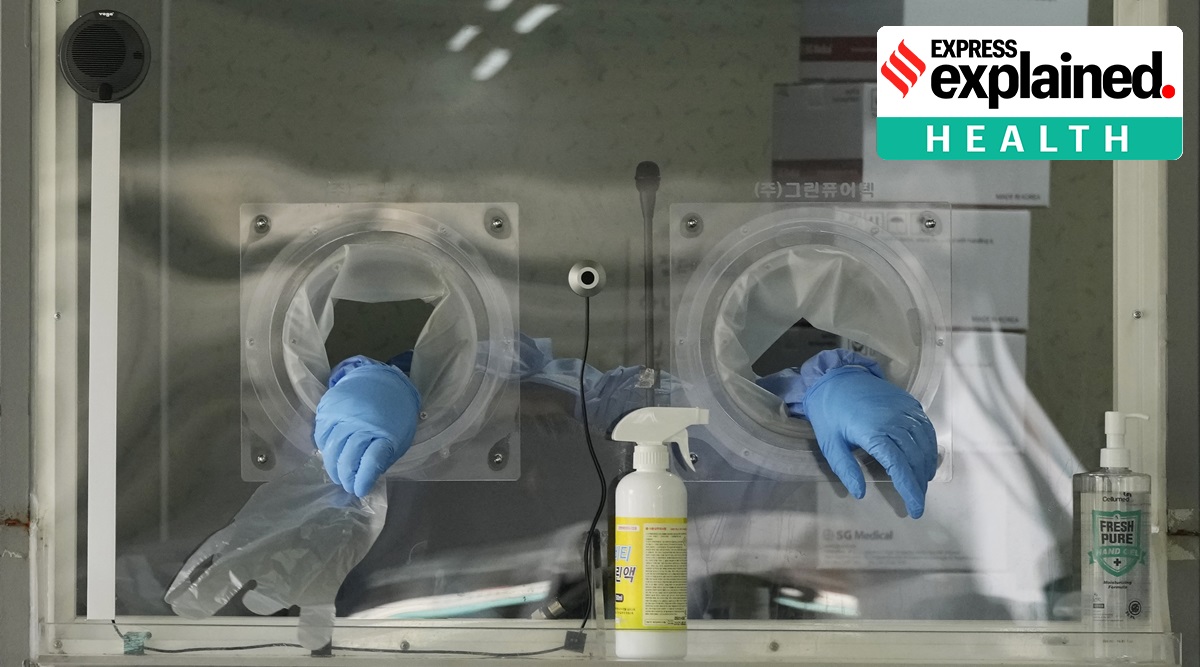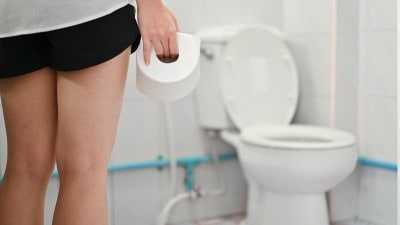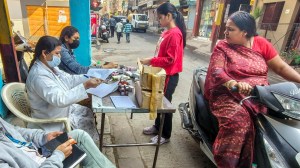New research: Platform shown to perform mass testing for coronavirus
SwabSeq, a testing platform that uses sequencing to test thousands of samples at a time to detect Covid-19, was able to perform more than 80,000 tests in less than two months.
 An exhausted worker in a booth rests during Covid-19 testing at a site in Seoul, South Korea, Tuesday, July 6, 2021. (AP Photo/Ahn Young-joon, File)
An exhausted worker in a booth rests during Covid-19 testing at a site in Seoul, South Korea, Tuesday, July 6, 2021. (AP Photo/Ahn Young-joon, File)In an article in Nature Biomedical Engineering, a team of scientists from the University of California, Los Angeles (UCLA) have reported real-world results on SwabSeq, a testing platform that uses sequencing to test thousands of samples at a time to detect Covid-19. They were able to perform more than 80,000 tests in less than two months, with the test showing extremely high sensitivity and specificity, UCLA said in a press release.
SwabSeq uses sample-specific molecular barcodes to simultaneously analyse thousands of samples for the presence or absence of SARS-CoV-2.
SwabSeq was granted FDA Emergency Use Authorization in October and is currently deployed at UCLA in a high-complexity laboratory, which has performed over 150,000 tests since December 2020.
SwabSeq is a flexible protocol and can rapidly scale up testing for novel pathogens.
“We have optimized SwabSeq to prioritize scale and low cost, key factors that are missing from current Covid-19 diagnostics,” the authors write.
UCLA quoted Dr Valerie Arboleda, lead scientist on the project, as saying: “These results demonstrate the potential of SwabSeq to be used for SARS-CoV-2 testing on an unprecedented scale. SwabSeq offers a potential solution to the need for population-wide testing to stem the pandemic.”
Source: UCLA
- 01
- 02
- 03
- 04
- 05






































